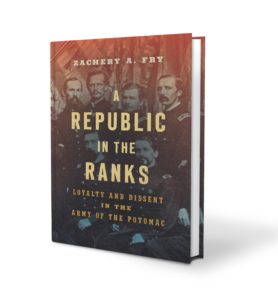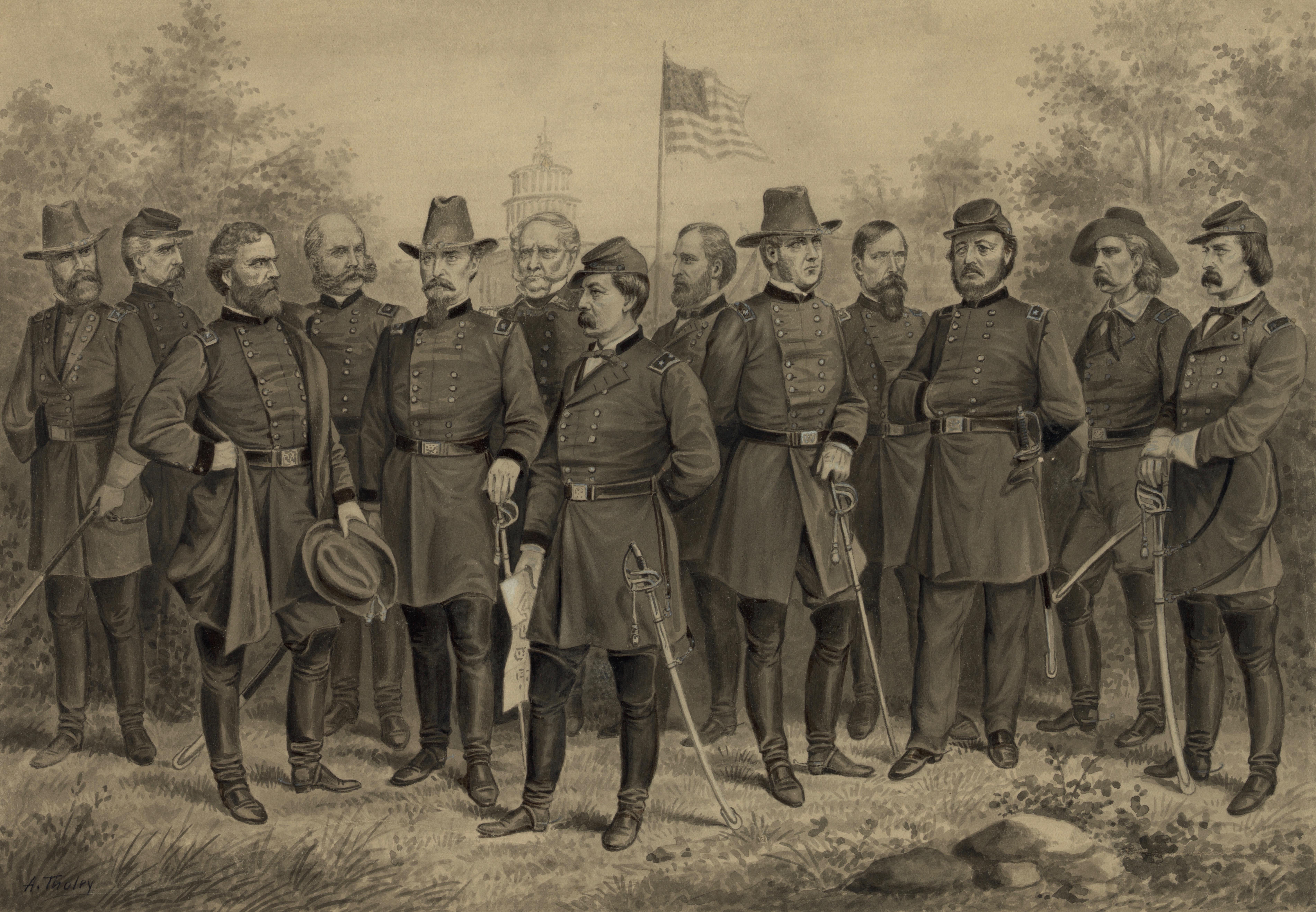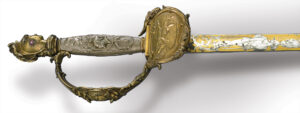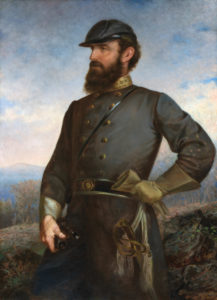A Republic in the Ranks:
Loyalty and Dissent in the Army of the Potomac
In A Republic in the Ranks, Zachery Fry takes a deep dive into political activity in the U.S. Army during the Civil War. He bolsters his central argument—that Republicans won the battle for the political allegiance of Union troops due largely to the activities of the junior officer corps—with prodigious research into contemporary newspapers, soldiers’ letters, military records, and other primary sources.
The author weaves an engaging, straightforward chronological narrative recounting the political machinations of key players such as George McClellan, Benjamin Butler, Joseph Hooker, Clement Vallandigham, John Pope, Fitz John Porter, George Meade, and members of the Joint Committee on the Conduct of the War.
“Before 1863,” Fry argues, “political activity was limited mostly to a handful of conservatives [Democrats]…and radicals [Republicans]…who sniped at each other as the mass of relative novices in the ranks learned what the war and its policies really meant.”

Loyalty and Dissent in the Army of the Potomac
By Zachery A. Fry
University of North Carolina
Press, 2020, $45
Members of the senior officer corps, often with Democratic sympathies, embraced loyalty to the Constitution, criticized Lincoln’s civil liberty infringements, and claimed to oppose partisanship in the war’s execution. Junior officers, many of them Republicans, pledged loyalty to the Lincoln administration and felt that senior officers’ devotion to conservative constitutionalism masked Confederate sympathies.
McClellan was pivotal to this political tug-of-war. A staunch Democrat, “Little Mac” was wildly popular with Union troops and initially seen as a buffer against Washington interference. But, Fry argues, by the time Lincoln cashiered McClellan in November 1862, the debate surrounding the Preliminary Emancipation Proclamation and the midterm elections had begun to cast the Young Napoleon in a less than flattering light.
From January through April of 1863, Fry argues, “was the critical refining moment in the army’s political education.” The Democratic Party’s vociferous antiwar wing demanded partisan pushback from federal troops who were witnessing the horrors of slavery first-hand and enduring a series of hardships and bloody battles. That spring, Union regiments began to adopt formal resolutions supporting the Lincoln administration and rejecting the antiwar stance epitomized by Copperheads.
By the summer of 1864, McClellan’s Democratic conservatism, capped by his acceptance of the party’s presidential nomination, had undercut his popularity with all but a few Union corps commanders.
Fry takes issue with both James McPherson and Jonathan White over the matter of Union reenlistment during the last years of the war. Both historians highlight political considerations as critical motivators but disagree on the numbers of Federal troops actually reenlisting. Fry argues for a more expansive set of determining factors—peer solidarity, the Republican idea of loyalty, commitment to the war, physical
condition, loyalty to family at home, and self-preservation—while suggesting that party affiliation was not as important a factor as McPherson, in particular, suggests.
By the 1864 presidential election, Republican partisans predominated in the Union ranks. As Fry documents, Lincoln won the majority of votes from troops in all but one state, faring better than he did among civilians.
A Republic in the Ranks is a welcome reminder that Union victory during the Civil War was won on more than one battlefield.
[hr]
*Thank you for visiting historynet.com. If you buy something through our site, we might earn a commission.





